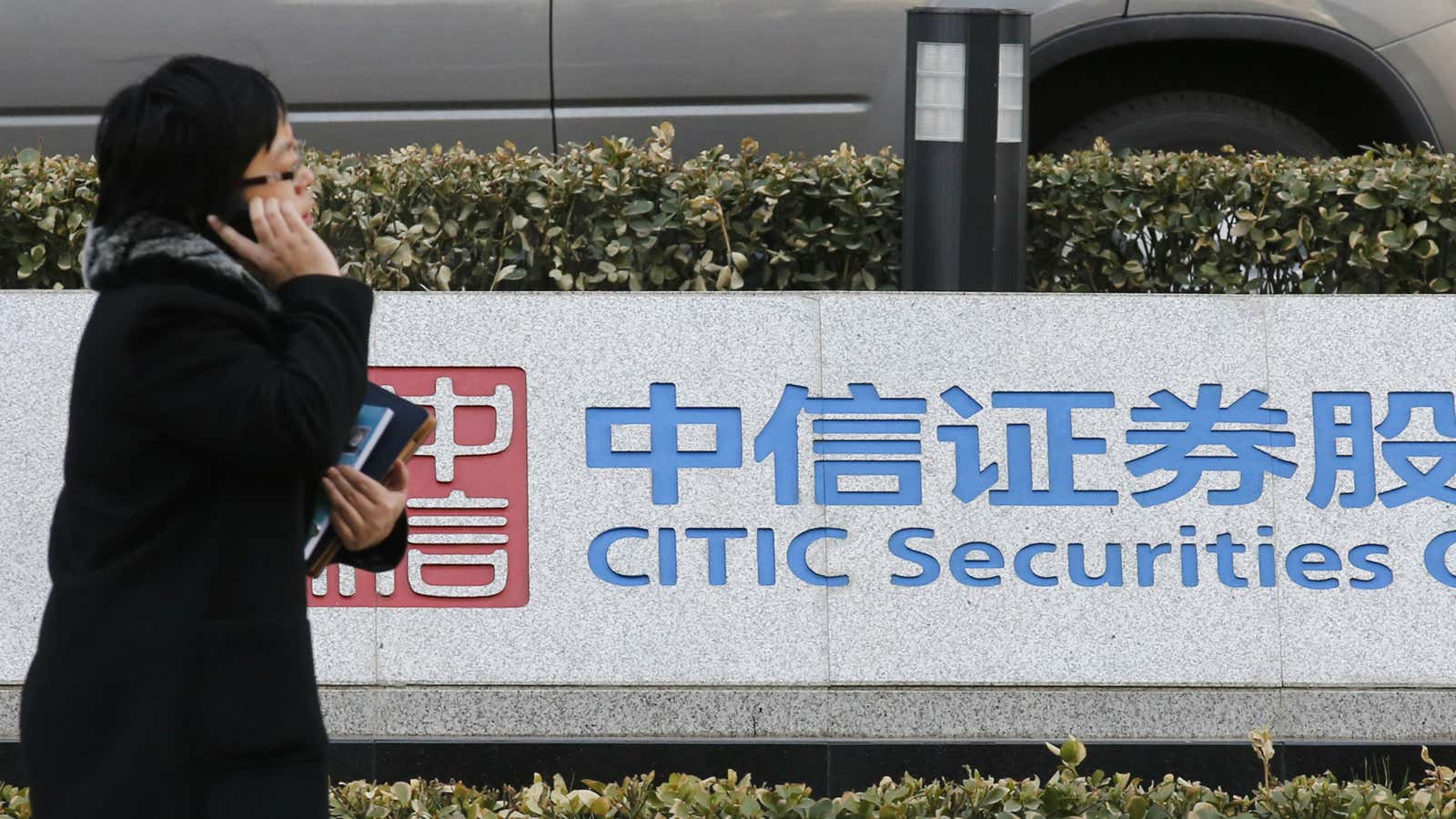Citic Securities, China’s biggest brokerage, reported a big jump in annual profit in 2015, even after leading Beijing’s stock market bailout last summer and being investigated for illegal trading.
Net profit for 2015 rose 75% to 19.8 billion yuan ($ 3 billion), Citic said Wednesday (Mar. 23) in a filing in Hong Kong. That jump would have been much higher, if Citic hadn’t invested a total of 21.1 billion yuan in a state fund to combat the market selloff.
Citic’s importance in China is a bit like JP Morgan’s or Goldman Sachs’ on Wall Street. It’s the top investment bank ranked by revenue, and the top equity underwriter in China. Parent Citic Group is the nation’s first state-owned investment corporation, founded in 1979 as part of paramount leader Deng Xiaoping’s push to liberalize the country’s economy. So when China’s stock markets tumbled this past summer, Citic stepped up, and led the government’s controversial efforts to prop them up.
According to its annual report, Citic invested a total of 21.1 billion yuan on July 6 and Sept. 1 of 2015 into a fund operated by China Securities Finance Corporation (CSF), the state-owned margin trader that was transformed into Beijing’s proxy to stem a $5 trillion stock market sell-off that began in mid-June.
On July 4 of 2015, 21 Chinese brokerages vowed to invest 100 billion yuan—or 15% of their total net assets—to stabilize the market. The CSF used the money to buy large cap stocks to prop up the benchmark indexes, and brokers would “share the income/loss based on contribution proportion,” according to Citic’s earnings. In September, the scheme—part of a more than $1 trillion government rescue package—expanded to 50 brokers and another 100 billion yuan (link in Chinese) investment.
So far nine Chinese brokers have reported 2015 earnings. The bailout cost Citic the most. These brokers haven’t disclosed whether they lost or made money on the investment.
Citic soon shifted from an arm of state policy to a target, when Beijing began looking for someone to blame for the stock market collapse. At least eight Citic executives were rounded up for alleged illegal trading since the market crash. Six of them—including president Cheng Boming—had left the company by Jan. 19, the broker said in its annual report. Longtime board chairman Wang Dongming, who hasn’t been accused of any wrongdoing, has also retired after heading the firm for 13 years.
“Most of them have successively returned to their work place or residences,” new chairman Zhang Youjun, who was hand-picked by parent Citic Group, said of the company associates who were probed by police in his statement in the annual report. He called the investigation ”the severest test faced by the company since its establishment.”
Citic said its margin lending business was probed by the authorities. The company hasn’t received any result from the stock regulator’s investigation as of Mar. 23.
